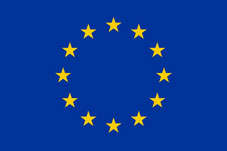
EU issues statement on epidemic consequences to vulnerable groups
BY MESSENGER STAFF
Tuesday, April 28
The Delegation of the European Union to Georgia published statements about gender equality and protecting vulnerable groups in Georgia. The EU welcomes the crisis communication action plan adopted by the government of Georgia which intends to raise awareness about the available assistance and state services in order to ease the hardship that families, individuals, and communities are experiencing.
The EU notes that gender equality remains one of the fundamental principles and core values of the EU and stresses that quarantine, isolation and enclosed financial stress imply a clear risk for continued and increased gender-based and domestic violence in all parts of society.
Special attention also needs to be paid to all children, ensuring their safety and equal access to health and educational opportunities. At the same time, no efforts should be spared to ensure that, in this challenging time, people with disabilities are granted proper medical care and education, economic support, and protection from any possible discrimination.
“It is positive that support services, such as the 112 line and shelters remain available to victims of gender based and domestic violence with adjustments made to the crisis situation. Further measures, such as the awareness-raising of citizens of their fundamental human rights and obligations, as well as the building of trust in state support and effective responses to cases of violence, are also welcomed,” reads the statement.
The statement also stresses the importance of the response of the Human Rights Council and Inter-agency Commission on Gender Equality, Violence against Women and Domestic Violence in terms of fighting against the crisis.
“The response by the Human Rights Council, including its Inter-Agency Commission on Gender Equality, has been - and continues to be - of great importance for Georgia’s handling of this crisis. As the authorities and the private sector continue to adopt measures and strategies to fight against COVID-19, a clear gender analysis will be crucial to Georgia’s successful handling of one of the negative key side effects of this pandemic.”
According to the statement, the negative impact of the pandemic is especially tough for vulnerable people. The immediate and necessary measures adopted to address the health and economic challenges should not leave anyone behind, including those already living below the poverty line, internally displaced persons and persons with disabilities, victims of gender-based and domestic violence, and people and children living on the streets.
The EU and its Member States are supporting the government and a number of state and civil society organisations in their actions to help those most affected by the pandemic. Grants provided to civil society organisations, including through the so-called Rapid Reaction Mechanism, allow them to provide immediate support to vulnerable groups.
The EU highlights the heavy burden many women are taking on during this crisis, working at the frontline in the sectors mostly challenged by the virus, such as healthcare and social services. At the same time, they are also expected to take care of their families when childcare facilities, schools and sufficient care services for the elderly and disabled are not available.


